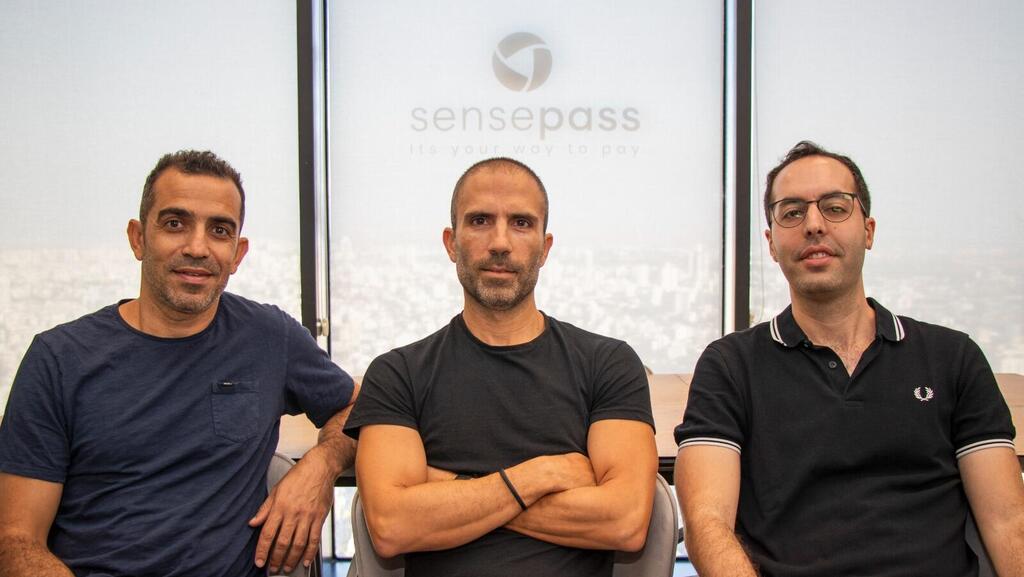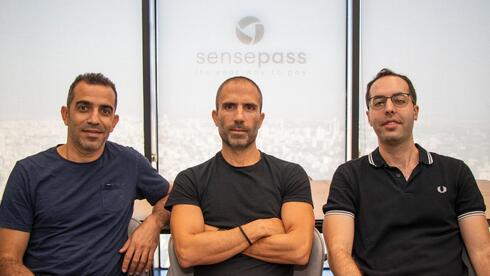
Boarding Pass
SensePass bringing new opportunities for the un-banked and under-banked
The Israeli company recently raised $3 million to take on credit card monopolies
“The retail payments market is currently dominated by the credit card model monopoly with Visa, Mastercard, and others,” explained SensePass. “Adding more payment options to this enormous market is disrupting that long-lasting monopoly and changing how people shop and check out both in a retail store and online. This shift will bring new sources of funding into the game and will open new opportunities for audiences that were left behind due to credit card limitations, such as un-banked or under-banked populations, as well as the younger generations that use alternative forms of payment such as e-wallets, crypto, buy-now-pay-later, etc.”
SensePass has built an omnichannel payments network that operates around any digital payment method or digital wallet. According to the company, which has raised a total of $5.3 million after securing $3 million last month from Menara Ventures, Direct Insurance (Bituach Yashir), and angel investors, these changes will increase spending power for shoppers while reducing costs for retailers. “It is a revolution that retailers have been seeking for years—now, the technology is here to assist them with achieving that,” the company said.
“At the end of the day, our solution can cater to any business that processes payments. It's a blue ocean of opportunities.”
SensePass joined CTech for its Startup Boarding Pass series to share how it is taking on the credit card industry.
Company Name: SensePass
Sector: Fintech
Product/Service description:
SensePass is a breakthrough innovator in contactless payments. Started by a team of seasoned technology veterans and fintech innovators, SensePass is expanding the boundaries of digital payment processes to offer shoppers a fast and seamless checkout, while increasing conversion and reducing fees for retailers. SensePass has built an omnichannel payments network that operates around any digital payment method or digital wallet, including an integrated system that goes far beyond traditional wallet apps and proprietary SensePass devices that shoppers can access to increase their spending power with a simple tap of their phones.
Founder Bios:
Moty Arcuschin, CEO: Executive and entrepreneur in the IT industry with vast experience in large-scale operations in global environments. He is a fintech and online industry veteran with 20+ years of experience. He is also the former co-founder of Mexos and Credimatch.
Chen Cohen, COO: Has 15+ years of experience in banking technology and managing big operations. He was formerly head of Bit at Bank Hapoalim.
Nir Alperovich, CTO: 20 years of programming/hacking experience. Mobile and security consultant to multiple banks.
Year of Founding: 2017
Last Investment Round: $3 million
Last Investment Stage: Seed
Date of Last Investment: September 2022
Total investment to date: $5.3 million
Investors (leading and all): Menara Ventures, Direct Insurance (Bituach Yashir), Angel investors
Current number of employees: 13
Open positions:
- Sales Director - US
- Partnerships Manager - US
- Customer Success - US
- Sales Engineer - IL
Website:
Social Media:
https://www.linkedin.com/company/sensepass
How was the idea born?
The idea was born when we noticed the increased adoption of alternative payment methods such as e-wallets, crypto, buy-now-pay-later, and more. We no longer keep our money or financial assets in bank accounts alone. More and more populations are exploring and experimenting with alternatives. The pandemic contributed to this trend, but it is not the only factor. However, retailers are still lagging with their ability to support all these payment options at their stores, as they are limited to the rails of the credit card networks, Visa, Mastercard, etc. These are why we see a strong need for retailers and consumers to have seamless checkout with any of these new options. It gives shoppers more freedom of choice as they shop and increases their spending power while allowing retailers to offer a frictionless digital checkout experience and reduce costs.
Related articles:
What is the need for the product?
Retailers are constantly searching for ways to increase conversion and their average tickets while reducing cost and improving the overall shopping experience, especially at the last mile, i.e., at checkout. Unfortunately, the current infrastructure for in-store payments is limited to card-based transactions, using old rails developed by the credit card monopoly. As a result, retailers have to pay high fees for each transaction (in the U.S., for example, the average is 2.5%). They cannot easily support the increased demand for using other means of payment where they can also manage money and financial assets. Examples such as Venmo, the Cash App, Klarna, Sezzle, Splitit, and more are not readily available for shoppers at checkout. SensePass is here to bridge precisely this gap. It brings all these forms of payment to retailers in one place, allowing shoppers more freedom of choice, increased spending power, and a seamless checkout experience using their mobile phones while reducing retailers' costs.
How is it changing the market?
The retail payments market is currently dominated by the credit card model monopoly with Visa, Mastercard, and others. Adding more payment options to this enormous market is disrupting that long-lasting monopoly and changing how people shop and check out both in a retail store and online. This shift will bring new sources of funding into the game and will open new opportunities for audiences that were left behind due to credit card limitations, such as un-banked or under-banked populations, as well as the younger generations that use alternative forms of payment (e-wallets, crypto, buy-now-pay-later, etc.). These changes will increase spending power for shoppers while reducing costs for retailers. It is a revolution that retailers have been seeking for years—now, the technology is here to assist them with achieving that.
How big is the market for the product and who are its main customers?
It's huge. At the end of the day, our solution can cater to any business that processes payments. It's a blue ocean of opportunities. However, at this stage of our company, we have decided to focus on the U.S. market, the largest in the world, generating more than $2 billion a year and constantly growing. Right now, we focus on a few specific segments where we are seeing massive demand for our solution: retailers (fashion, wholesale, department stores, convenience, etc.) and education (universities and colleges). Both segments serve relevant demographics and have a strong presence of early adopters, who are an ideal audience for our technology. From there, we plan to grow and expand to other territories and segments, such as hospitality, entertainment, automotive and more.
Does the product exist already? If not - at what stage is it and when is it expected to hit the market?
Our product is live in Israel and the U.S., working at scale with dozens of retailers, including Kith, Emporio, Town Shop, Ramsey Outdoor, and several universities and colleges, such as ECPI University with 22 campuses, The Berkeley College, Washington University, and more. After completing a very successful POC in Israel last year, we decided in early 2022 to expand in the U.S. We recently signed strategic partnerships with large platforms and providers, such as PayPal, Venmo, Klarna, Sezzle, Splitit, BitPay, and Trustly. We are now working to scale our solution in this market through these channels.
Who are the main competitors in this sector and how big are they?
Our main competitors are the legacy forms of payments, such as credit cards and debit cards. Of course, they will not disappear tomorrow morning, so we are also supporting them as part of our portfolio, but since we are agnostic to any form of payment, we can offer retailers both the legacy world as well as the new world of payments.
What is the added value that the founders bring to the company and the product?
Moty brings more than 10 years of experience in the fintech world as an executive and entrepreneur. Chen and Nir come from the banking world and led the development of the Bit app for Bank Hapoalim. We all know fintech well, we understand payments, and we see the pain retailers and shoppers experience when it comes to the checkout experience and the payments process.
What will the money coming in from the round be used for?
The Seed round will allow us to develop and expand our product further but mainly is aimed to support our business activity in North America and to grow and scale our offerings and reach in this market.
In the "Startup Boarding Pass" section, CTech will cover the (relatively) small investments made in companies during the early stages of their existence - and the entrepreneurs and startups who have not yet had the opportunity to reveal their stories to the world. Please use the linked form and fill it out according to the guidelines. This form is intended for startups raising between $500,000 and $3 million from venture capital funds, angels, or official grants from Israeli and foreign institutions. If relevant, someone at CTech will be in touch for follow-up questions.
